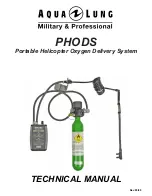
CP14 | CP14-AC | CP18 | CP18-AC - Owner´s Manual
9
En
gl
is
h
De
u
ts
ch
Če
sky
Es
p
añ
o
l
Fran
çais
Itali
an
o
Po
ls
ki
Po
rt
u
gu
ês
6
P
LAYING
T
ECHNIQUES
Cymbals
Tip Stroke (Bow)
Edge Stroke
Strike the bow region with the tip of the stick within the high-
lighted area. This will trigger the bow sound.
Strike the edge with the shoulder of the stick in the region of
the edge sensor. This will trigger the edge sound.
Bell Stroke
Cymbal Choke
Bells on acoustic cymbals produce musical sounds using ei-
ther the shoulder or the tip of the stick. Utilize both techniques
to trigger the bell sound.
After performing an Edge Stroke, subsequently apply pressure
to the edge sensor using the fingers. This will prevent the edge
sound from sustaining any longer. Regarding Hi-Hats this tech-
nique is only practical for longer sounding, open sounds.
With pressure applied to the edge, striking the cymbal will re-
sult in a short, staccato edge sound.
7
C
OMPATIBLE
S
TANDS
Compatible stands for GEWA E-Cymbal seats
The following measurements describe the minimum requirements for
a cymbal stand to fit GEWA E-Cymbal Seats, providing enough play
for free cymbal movement. Note that the min/max measurements
suppose an overall height of wing nut and felt of 33 mm (1 ¾”).
Measure in
[mm]
Measure in
Inch [“]
A
Thread diameter
M8
8 mm
B
Thread length
min
38,1mm
1 ½”
C
Length non-threaded rod
min
38,1mm
1 ½”
D
Diameter non threaded part
max
8,5 mm
Summary of Contents for CP14
Page 2: ......
Page 4: ......
Page 7: ......
Page 14: ......
Page 17: ......
Page 18: ......
Page 27: ......
Page 28: ......
Page 44: ......
Page 55: ......
Page 56: ......
Page 72: ......
Page 83: ...CP14 CP14 AC CP18 CP18 AC 13 English Deutsch Česky Español Français Italiano Polski Português ...
Page 84: ...14 CP14 CP14 AC CP18 CP18 AC ...
Page 85: ...CP14 CP14 AC CP18 CP18 AC 15 ...













































